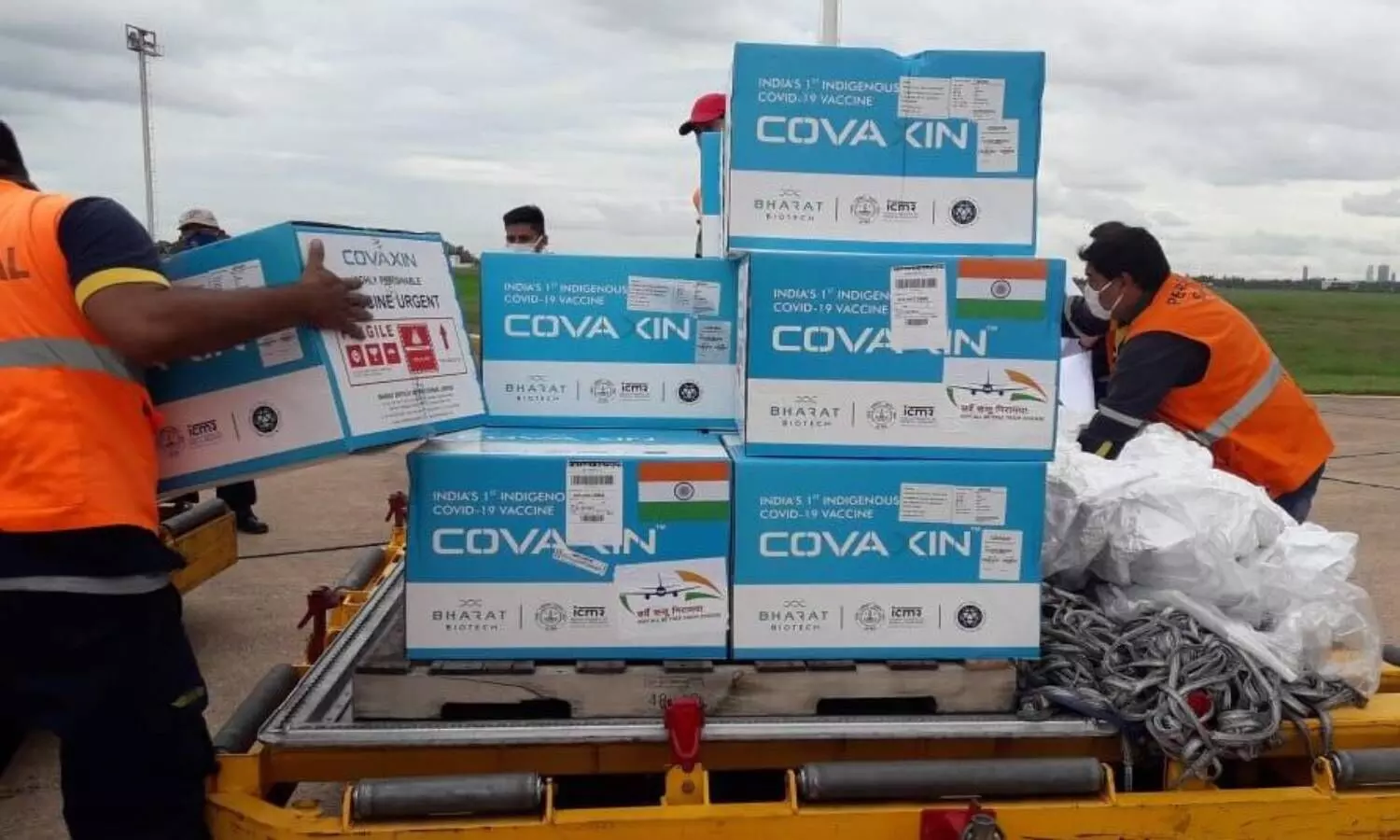Complex manufacturing process, cost of raw materials behind Covaxin cost: Bharat Biotech
The supply price of Covaxin at Rs 150 per dose to the government of India is a non-competitive price and clearly not sustainable in the long run. Hence, a higher price in private markets is required to offset part of the costs.
By Newsmeter Network
Hyderabad: Amid the uproar of Bharat Biotech's COVID-19 vaccine, Covaxin, being priced at Rs 1,410, which is the costliest vaccine in the country at private vaccine centres, the company on Tuesday said that vaccine pricing depends on numerous factors.
"The pricing includes the cost of goods and raw materials, product failures at risk product development outlays, product overages, the entire capital expenditure for setting up sufficient manufacturing facilities, sales and distribution expenses, procurement volumes and commitments besides other regular business expenditure," said the company.
They added that whole virion inactivated vero cell vaccines such as Covaxin are highly complex to manufacture since the critical ingredient is based on live viruses which require highly sophisticated, multiple level containment and purification methods. Such high standards of purification automatically lead to significant process losses and low yields save the outcome of a highly purified and safe vaccine. "This is evident from the excellent safety contours of Covaxin with an impressive supply of more than 40 million doses to date. It is emblematic that Bharat Biotech has not sought indemnity from the government of India for any adverse events from Covaxin," the company said in its statement.
The sheer complexity of the Covaxin manufacturing process is manifested by the fact that it requires about 10,000 sq meters of area to manufacture around 200 million doses of the vaccine annually. In comparison, the same quantity of live virus vaccines can be manufactured from mere 1,500 sq meters. Due to the highly contagious nature of the live SARS-CoV-2 virus, stringent Biosafety Level-3 (BSL-3) containment facilities are required for the manufacturing of Covaxin.
Every batch of manufactured product is subjected to more than 200 quality control tests, prior to its release. "It is exactly this complexity that has kept away other companies from developing vaccines, especially whole virion inactivated vaccines. The SARS CoV2 virus provided by ICMR-NIV is also equally available to other manufacturers who wish to develop and manufacture such a vaccine. Companies would need access to cell lines, BSL3 manufacturing and quality control facilities, and several well trained technical teams, to manufacture Covaxin," said the company.
Why is Covaxin more expensive for the private sector?
The company said that this is purely due to fundamental business reasons, ranging from low procurement volumes, high distribution costs and retail margins, among others.
As directed by the government of India, less than 10 per cent of our total production of Covaxin to date has been supplied to private hospitals, while most of the remaining quantity was supplied to state and central governments. In such a scenario the weighted average price of Covaxin for all supplies realised by Bharat Biotech is less than Rs 250 per dose. Going forward, around 75 per cent of the capacity will be supplied to state and central governments with only 25 per cent going to private hospitals.
"The supply price of Covaxin at Rs 150 per dose to the government of India is a non-competitive price and clearly not sustainable in the long run. Hence, a higher price in private markets is required to offset part of the costs. There are live examples of such pricing policies where human papilloma virus vaccine is priced for GAVI supplies at $4.5 (Rs 320) per dose, but is also available in the private market at Rs 3500 per dose. The rotavirus vaccines are supplied to the government of India at Rs 60 per dose, but are also available in the private market at Rs 1,700 per dose. The prices for COVID-19 vaccines internationally are varied between $10 to $37 per dose (Rs 730 to Rs 2,700 per dose).
Low product price realisation dispirits domestic R&D
Companies such as Bharat Biotech, which are innovators with specialized expertise in product development, and large-scale manufacturing, should be allowed to maintain a differential pricing strategy for governments and private hospitals.